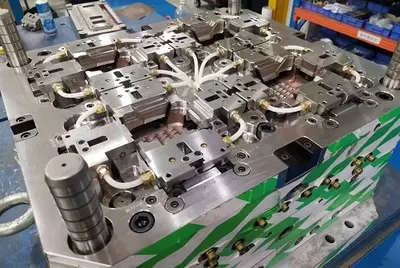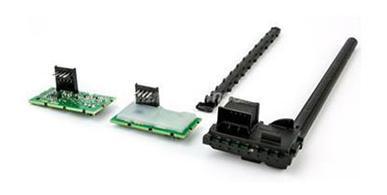

The basic concept of plastic:
1. The definition and composition
Plastic generally refers to a material which has a plastic synthetic resin as a main component, has plasticity and fluidity under a certain temperature and pressure, can be molded into a certain shape, and maintains a shape under certain conditions.
Composition: polymer synthetic resin (40 ~ 100%)
Auxiliary materials: plasticizers, fillers, stabilizers, lubricants, colorants, foaming agents, reinforcing materials.
Auxiliary materials is able to improve the performance and processing properties of materials, saving plastic resin (expensive)
2. Classification of plastics:
There are more than 300 varieties plastics in the world, but only around 40 kinds are commonly used.
It is called by the name of the main synthetic resin: polyethylene, polypropylene, polyvinyl chloride, phenolic resin, oxygen resin, commonly known as: bakelite (phenol-formaldehyde resin), plexiglass (polymethyl methacrylate), glass reinforced plastic ( Thermosetting resin reinforced with glass fiber), English name is nylon (polyamide) PA, polyethylene PE
Classification of plastics: Thermoplastics and thermoset plastics (by molecular structure of plastics)
A. Thermoplastics
The linear molecular chain has a scaffold structure and is soften after heating, but cooling and solidification is irreversible.
B.Thermoset plastics
It has a network molecular chain structure and is soften after heating, solidification is irreversible.
General plastics: Refers to a type of plastic with large output, wide application and low price. Such as: polyethylene, polypropylene, polyvinyl chloride, polystyrene, phenol-formaldehyde resin, amino plastics etc., accounted for 60% of plastic production.
Engineering plastics: Refers to a type of engineering materials that have high mechanical properties and can replace metals, such as Nylon, polyphosphate, POM, ABS etc.
C. Properties of Plastics
a. Light weight, density 0.9~0.23g /cm^ ; Foaming plastic 0.189g/cm
b. High strength: 1/10 of the strength as metal materials. Fiber glass material strength is higher.
c. Good chemical stability
d. Excellent electrical insulation performance
e. Good thermal insulation
f. Easy to form and process compare to metal.
g. Insufficient: Strength, rigidity is not as good as metal, not heat resistant. The thermal expansion coefficient is large under 100 degrees Celsius, shorter life than metal.






 Call us on:
Call us on:  Email Us:
Email Us:  1st Floor, Block1, No.3 Beiting Road, Houting Community, ShaJing Street, Bao'An District, Shenzhen City, Guangdong Province, China
1st Floor, Block1, No.3 Beiting Road, Houting Community, ShaJing Street, Bao'An District, Shenzhen City, Guangdong Province, China